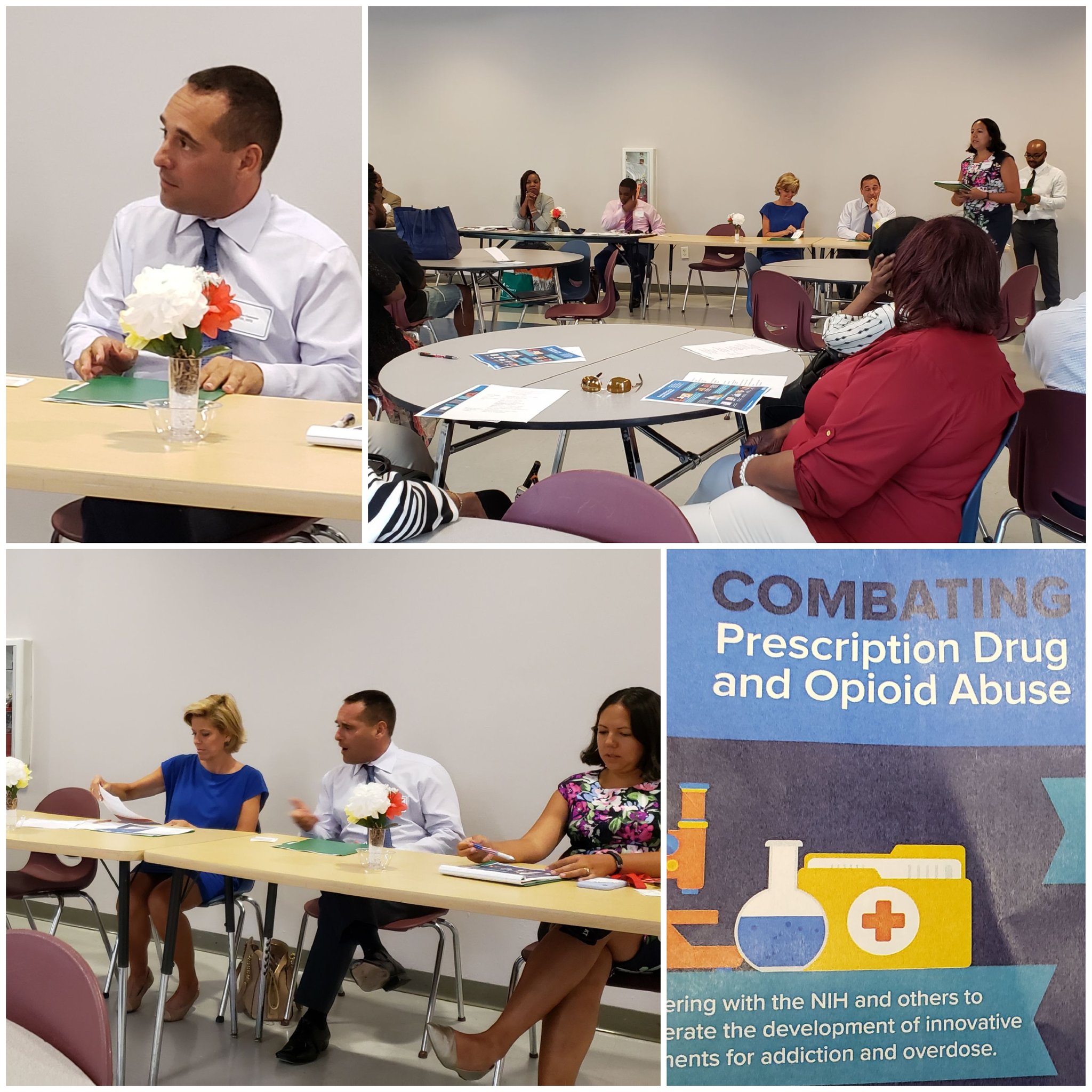Opioid Policies

Much like the rest of the United States, residents of the District of Columbia are struggling with substance use disorder (SUD) rate increases and high rates of opioid-related deaths. Unfortunately, these are multi-faceted issues that require year-long initiatives and systematic programs to address the myriad causes of addiction.
MSDC stands as a partner to the District government and private entities to help arrest the rates of opioid and substance abuse in the District. Through our advocacy for better prescribing practices, education on addiction, and even helping our own community through our Physician Health Program, MSDC is working to make DC a leader in reducing SUD, OUD, and addiction.
On a related note, MSDC is passionate about helping patients make prescriptions and medication more affordable. Whether expanding access to biosimilars or advocating for more affordable co-pays, MSDC wants to help our patients afford the medications they need.
MSDC Statement and Testimony on Opioid and Prescription Issues
25th Council information coming soon
DHCF Ends X-Waiver Requirement to Prescribe SUD Medications
The Director of the Department of Health Care Finance (“DHCF”), pursuant to the authority set forth in Section 6(6) of the Department of Health Care Finance Establishment Act of 2007, effective February 27, 2008 (D.C. Law 17-109; D.C. Official Code § 7-771.05(6)) and An Act To enable the District of Columbia to receive Federal financial assistance under Title XIX of the Social Security Act for a medical assistance program, and for other purposes, approved December 27, 1967 (D.C. Law 25-1; D.C. Official Code § 1-307.06), hereby gives notice of the adoption, on an emergency basis, of an amendment to Chapter 27 (Medicaid Reimbursement for Fee For Service Pharmacy Services) of Title 29 (Public Welfare) of the District of Columbia Municipal Regulations (“DCMR”) and the intent to adopt the these rules as a final rulemaking not less than thirty (30) days after the date of publication of this notice in the District of Columbia Register.
The emergency and proposed rulemaking makes changes to Section 2710 (Claims Reimbursement Requirements for Pharmacies) and Section 2799 (Definitions) to align District policy with recent federal policy changes regarding controlled substances. In section 1262 of the Consolidated Appropriations Act, 2023, enacted December 29, 2022 (P.L. No 117-328; 136 Stat. 4459), Congress eliminated the “DATA-Waiver Program.” This program required providers to have a waiver (called DATA-waivers or X-waivers) to prescribe medications, such as buprenorphine, to treat substance use disorder. As such, the District has required licensed prescribers to include their X-DEA identification number from their waiver on prescriptions for certain controlled substances. Because no X-DEA numbers will be issued or required under the new federal policy, the Department of Health Care Finance has decided to repeal the current requirement that a prescriber provide their X-DEA number in order for a prescription for a covered controlled substance to be reimbursable under the District’s Medicaid fee-for-service program.
Subsection 2710.4 has been updated to remove the requirement that a prescription must include the X-DEA number of the licensed prescriber for buprenorphine and naloxone drug preparations. Subsection 2799.1 is also amended to remove the definition of “X-DEA number” as it is no longer referenced in Chapter 27.
Emergency action is necessary for the immediate preservation of the health, safety, and welfare of District Medicaid beneficiaries. This rule is being enacted on an emergency basis to expand the number of providers eligible to receive Medicaid reimbursement for prescribed drugs such as buprenorphine that treat substance use disorder in order to mitigate the effects of the opioid epidemic.
The emergency rulemaking was adopted by the DHCF Director on June 21, 2023 and became effective on that date. The emergency rules will remain in effect for one hundred and twenty (120) days or until October 19, 2023, pursuant to Section 6 of the District of Columbia Administrative Procedure Act, approved October 21, 1968 (82 Stat. 1206; D.C. Official Code § 2-505(c) (2016 Repl.)), unless superseded by further emergency or final rulemaking.
Sample of Legislation MSDC Tracked on Opioid and Prescription Policy
What does it do? The bill authorizes licensed pahrmacists to dispense interchangeable biological products and requires notifications to physicians when such interchangeables are dispensed.
MSDC position: MSDC has a position of priority support on this legislation, identifying its passage as one of its highest legislative priorities.
Current status: SUCCESS. The bill was passed by the Council and signed by the Mayor.
What does it do? The bill requires prescription opioid medications to include a statement that the drug is an opioid and opioids may cause dependence, addiction, or overdoes.
MSDC position: MSDC supports the legislation.
Current status: The bill had a hearing before the Committee on Health on July 29, 2020. MSDC leader Dr. Sam Kareff testified for the Medical Society. It passed the Council on November 10 and was signed by the Mayor December 7.
What does it do? The bill prohibits insurance companies from factoring the use of PreP in decisions related to disability, life, or long-term care policies.
MSDC position: MSDC supports this legislation
Current status: The bill was introduced on January 8, 2019 and assigned to the Committee on Business and Economic Development.

Leave a comment